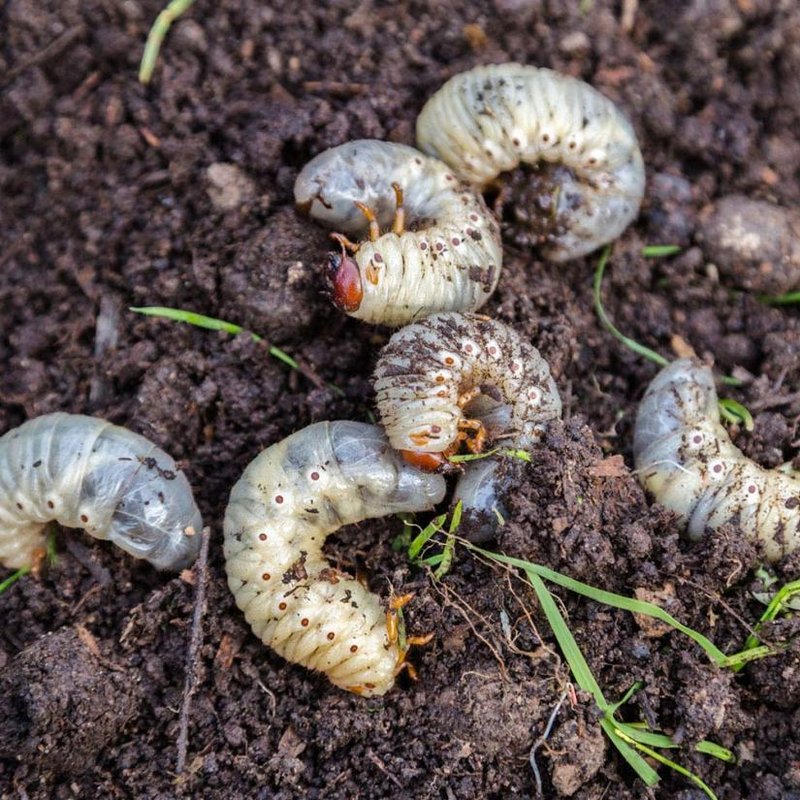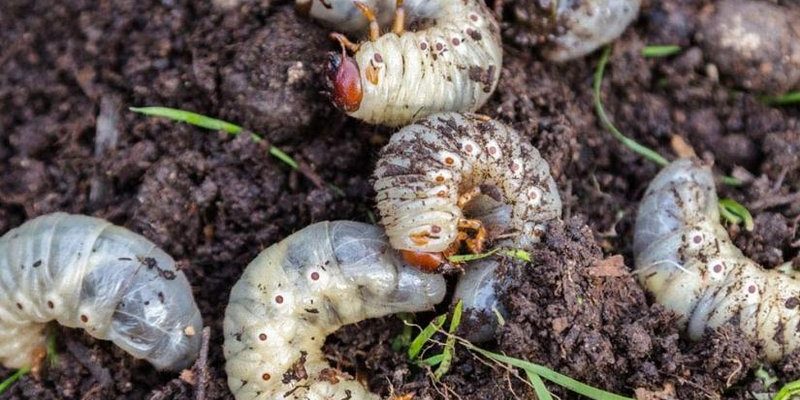
In this article, we’ll dive into how these little guys fit into the sustainability puzzle. You might be wondering why you should care about grub worms, especially if you’ve had a few run-ins with them munching on your plants. Don’t fret! Understanding their role can actually help you create a thriving ecosystem in your own backyard.
What Exactly Are Grub Worms?
Grub worms are the larvae of various beetles, most commonly the Japanese beetle. They typically have a white, C-shaped body and live underground. These little critters feed on organic matter, primarily roots and decaying plant material. Think of them as nature’s recyclers, breaking down old plant matter and returning nutrients to the soil.
While they are often associated with plant damage, they’re also vital in the composting process. By aerating the soil and breaking down organic material, they help create a rich environment for your garden plants to thrive. You could say that grub worms are like the unsung heroes of your garden, working hard behind the scenes.
How Do Grub Worms Contribute to Soil Health?
Healthy soil is the foundation of a sustainable garden, and grub worms play a pivotal role in that. As they feed on decaying plant matter, they break it down into smaller pieces. This process not only helps speed up decomposition but also enhances soil aeration.
When the soil is well-aerated, it allows water and nutrients to penetrate deeper, making them available to plant roots. Better aeration means healthier plants. Plus, as grub worms digest organic material, they produce waste that’s rich in nutrients, further enriching the soil. Honestly, their presence can lead to a more vibrant and productive garden.
The Role of Grub Worms in Composting
If you’ve ever composted, you know its magic in transforming kitchen scraps into nutrient-rich soil. Grub worms can be a fantastic addition to your compost pile. As they munch away, they help break down tougher materials like vegetable peels and yard waste faster.
Here’s a little story for you: imagine dumping your leftover vegetable scraps into the compost bin, and soon, you have a lively community of grub worms feasting on them. Not only are they doing their part to speed things up, but they’re also contributing to a nutrient boost. You’ll have rich, dark compost to mix into your garden, giving your plants an extra edge.
Can Grub Worms Harm Your Plants?
Here’s the thing—while grub worms can provide numerous benefits, they’re not without their downsides. If their population gets too large, they can start feeding on the roots of your plants, leading to wilting or even death of the plants. This is especially true for young seedlings that are still establishing their root systems.
As a gardener, it’s important to maintain a balance. You don’t want to eliminate grub worms completely, but you do want to keep their numbers in check. Monitoring your garden and practicing good gardening techniques can help you enjoy the benefits without the downsides.
Signs of Grub Worm Damage
If you’re concerned about grub worms harming your plants, there are a few signs to look for:
- Wilting Plants: If your plants are drooping, it might be a sign that the roots are damaged.
- Yellowing Leaves: Poor root health can lead to nutrient deficiencies, causing leaves to turn yellow.
- Dead Patches of Grass: If you notice areas in your lawn that are brown or bare, it could be a grub infestation.
Being aware of these signs can help you intervene before damage becomes severe.
How to Manage Grub Worms in Your Garden
You might be wondering, “How do I manage the grub worms without completely eliminating them?” Here are a few helpful strategies:
1. **Natural Predators:** Encourage birds, beneficial nematodes, or parasitic wasps to your garden. These natural predators can help keep the grub worm population under control.
2. **Soil Aeration:** Regularly aerating your soil helps improve drainage and overall health. A healthy ecosystem can support beneficial insects while limiting pests.
3. **Plant Diversity:** Growing a variety of plants helps create a balanced ecosystem. This diversity can attract different predators that keep grub worms in check.
By using these strategies, you can create an environment where grub worms contribute positively to your garden without causing significant harm.
Alternatives to Grub Worms in Sustainable Gardening
If you’re not keen on having grub worms in your garden, there are alternatives that can still promote sustainability. For example, you can focus on attracting **earthworms** instead. Earthworms help aerate the soil and enrich it with their castings, much like grub worms but without the plant-feeding stage.
Alternatively, using **composting methods** that don’t rely heavily on grub worms can be effective. Techniques like vermicomposting, which uses red wigglers, can be a fantastic way to create nutrient-rich soil without the concern of grub worm damage.
Final Thoughts on Grub Worms and Sustainability
Incorporating grub worms into your sustainable garden can be a double-edged sword. They can improve soil health and enhance composting, but they can also damage plants if their numbers aren’t kept in check. As you consider the role of these little creatures, remember that balance is key.
By understanding the benefits and potential drawbacks of grub worms, you can make informed decisions for your garden. With a little care and observation, you can maintain a thriving ecosystem that benefits your plants and the environment. After all, gardening is all about creating harmony between nature and your plants, and grub worms can be part of that beautiful balance.

